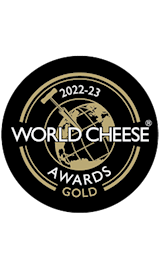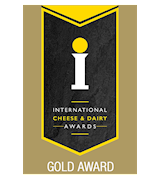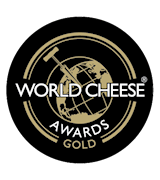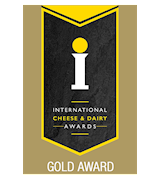Best Western European Smoked Cheese Producers
Galbani Cheese is an iconic Italian brand that has been producing high-quality cheese for over a century. Founded in 1882 in Italy, it is renowned for its rich tradition of craftsmanship and expertise in cheese-making. Galbani offers a wide range of cheeses, including mozzarella, ricotta, parmesan, and mascarpone, each made with the finest ingredients to deliver exceptional flavor and texture.
Galbani's mozzarella is especially popular, widely used in pizzas, pastas, and salads, and is loved for its delicate texture and creamy taste. The brand is committed to maintaining traditional production methods while innovating to meet the demands of modern consumers.
AWARDS

World Cheese Awards - Gold
2022

International Cheese Awards - Gold
2019

World Championship Cheese Contest - Best of Class
2024, 2022, 2020, 2016, 2012, 2010
BEST Galbani Cheese Cheeses
AWARDS

Concours International de Lyon - Gold
2025

World Cheese Awards - Gold
2024, 2022
BEST Queseria El Faro Cheeses
AWARDS

Concours International de Lyon - Gold
2025

Great Taste Awards - 2 stars
2024

World Cheese Awards - Gold
2024
BEST Valle de San Juan Cheeses
Best Western European Smoked Cheeses
Reserva Ahumado is a type of cheese produced by Lacteas García Baquero. It is known for its distinctive smoky flavor, which is achieved through a careful aging and smoking process. The cheese is typically aged for 12 months, allowing it to develop a rich and complex flavor profile that combines its natural creaminess with smoky undertones.
Lacteas García Baquero is a reputable Spanish dairy company known for its high-quality cheese products, and Reserva Ahumado stands out as a premium offering in their range.
AWARDS

World Cheese Awards - Gold
2022
AWARDS

American Cheese Society Judging & Competition Awards - 1st Place
2024
AWARDS

International Cheese Awards - Gold
2024
AWARDS

World Cheese Awards - Gold
2024, 2022
AWARDS

World Cheese Awards - Gold
2024
AWARDS

World Cheese Awards - Gold
2024
AWARDS

World Cheese Awards - Gold
2024
AWARDS

World Cheese Awards - Gold
2024
TasteAtlas food rankings are based on the ratings of the TasteAtlas audience, with a series of mechanisms that recognize real users and that ignore bot, nationalist or local patriotic ratings, and give additional value to the ratings of users that the system recognizes as knowledgeable. TasteAtlas Rankings should not be seen as the final global conclusion about food. Their purpose is to promote excellent local foods, instill pride in traditional dishes, and arouse curiosity about dishes you haven’t tried.



